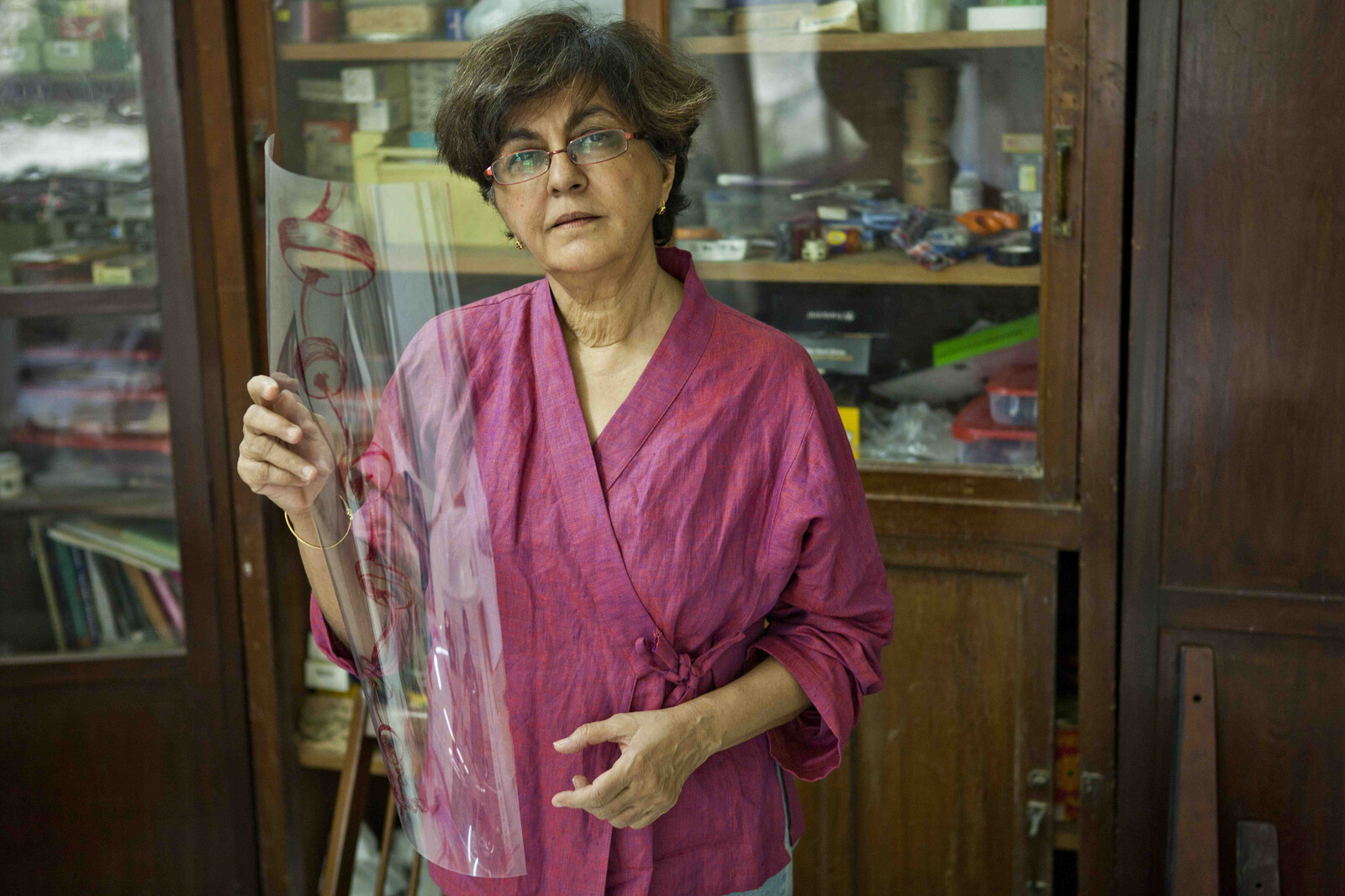Parc de Montjuic, s/n
08038 Barcelona
Spain
Hours: Tuesday–Sunday 10am–8pm
T +34 934 43 94 70
info@fmirobcn.org
At a press conference held at the Fundació Joan Miró, Barcelona, on May 23, 2019, Marko Daniel, Director of the Fundació Joan Miró, and Elisa Durán, Deputy General Director of the ”la Caixa” Foundation, announced Indian artist Nalini Malani as the new Joan Miró Prize winner.
Malani, who was also present at the press conference, was unanimously selected by an international jury composed of Iwona Blazwick, Director of the Whitechapel Gallery (London), Magnus af Petersens, Director of the Bonniers Konsthall (Stockholm), Alfred Pacquement, former Director of the Musée national d’art moderne, Centre Georges Pompidou (Paris), João Ribas, Curator of the Portuguese Pavilion at the 58th Venice Biennale 2019, Nimfa Bisbe, Head of the ”la Caixa” Foundation contemporary art collection, and Marko Daniel, Director of the Fundació Joan Miró (Barcelona). The jury members, all renowned professionals in the field of contemporary art, selected the winner for her prodigious intellectual curiosity, her artistic achievements over the decades, and her socio-political awareness, values that also shaped the life and work of Joan Miró.
In their statement, the jury members highlighted the countless cultural references upon which Malani has built “an impressive body of work that engages viewers through complex, immersive installations that present her vision of the battered world we live in. Her interest in ancient mythology, both Greek and Indian, as well as in modern symbols and image-making, has allowed her to develop a very personal, cosmopolitan iconographic mingling that boldly denounces contemporary violence and injustice, and their effects on planetary life.”
As the winner of the Premi Joan Miró, Malani will receive a EUR 70,000 cash prize, and will be featured in a solo exhibition in 2020 at the Fundació Joan Miró, jointly produced with ”la Caixa” Foundation.
Nalini Malani (Karachi, 1946) was born under the British Indian Empire and grew up between Kolkata and Mumbai, where her family sought exile after the Partition of India. This personal background marked by the consequences of colonialism led to a firm socio-political commitment and a distinctly cathartic approach in her work, a reminder of the vulnerability of human existence and the exploration of female subjectivity. She now lives in Mumbai, where she pursues her multi-disciplinary artistic quest in a language all of her own. A pioneer in film, photography, installation, video art, and performance in India, Malani studied fine arts at the Sir Jamsetjee Jeejebhoy School of Art in Mumbai and then spent two years in Paris, from 1970 to 1972, with a scholarship from the French government. After an international career, in 2010, the San Francisco Art Institute granted her an honorary doctorate in fine arts while in 2013 she became the first Asian woman to receive the Arts & Culture Fukuoka Prize. Among other distinctions, the artist was also presented with the St. Moritz Art Masters Lifetime Achievement Award in 2014 and the Asian Art Game Changers Award in 2016. International art institutions to have shown her solo exhibitions include the Centre Pompidou in Paris, the Castello di Rivoli – Contemporary Art Museum in Rivoli (Turin), the New Museum in New York, the Institute of Contemporary Art (ICA) in Boston, the Stedelijk Museum in Amsterdam, the Irish Museum of Modern Art in Dublin and the Kiran Nadar Museum of Art in New Delhi.
Previous winners of the Prize were Olafur Eliasson (2007), Pipilotti Rist (2009), Mona Hatoum (2011), Roni Horn (2013), Ignasi Aballí (2015), and Kader Attia (2017).
